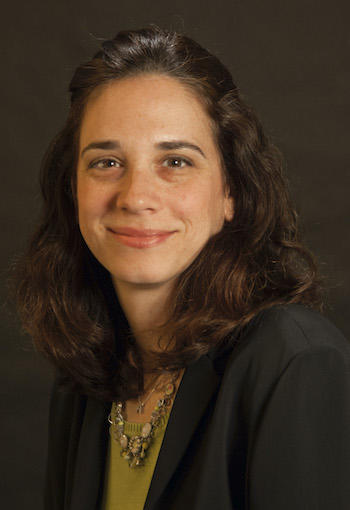It’s not realistic to expect the criminal justice system to always be perfect, but George Mason University’s Allison Redlich doesn’t think it’s too much to ask that it addresses the mistakes it makes in a fair and timely fashion.
Redlich, a professor in the Department of Criminology, Law and Society within the College of Humanities and Social Sciences, and a colleague at Central Michigan University have received a collaborative National Science Foundation grant of $385,000 to study wrongful convictions within the U.S. criminal justice system, the factors that initially lead to them, and the many delays from various states in doing right by the wrongfully incarcerated after their release. The project, which begins in June, is called “Collaborative Research: Exoneration and Compensation: The Role of False Confessions.”
“We’re excited,” Redlich said. “The criminal justice system is never going to be perfect. I think that’s not an ideal we can strive for, but we can try to right wrongs when we find them through compensation, usually financial. Some do get compensated, but there are a lot of challenges and obstacles for many others. So, there are a lot of different nuances we’re trying to examine.”
According to the National Registry of Exonerations, we now know about more than 2,700 people have been wrongfully convicted since 1989 only to be later found innocent of the crimes of which they were accused of committing. They collectively represent 24,590 years lost.
But doing right by them has been a painfully slow process for these victims, the majority of whom are poor and persons of color.
More than 35 states and the District of Columbia each have their own specific guidelines for financially compensating those erroneously sent to prison, but they vary from state to state. Some offer as much as $80,000 for each year a person was wrongfully imprisoned, while others have imposed strict caps on the amount of compensation offered, or offer no financial compensation at all.
A major part of Redlich’s project is to determine whether the delays in justice can be attributed to false guilty pleas and false confessions in which people—unaware of their rights or other legal options—are pressured into admitting guilt. States have proven considerably less inclined to compensate someone wrongfully imprisoned under those circumstances.
“False guilty pleas are a major part of my research agenda,” Redlich said. “About 20% of known exonerations are false guilty pleas; they are a big problem similar to false confessions and are similarly misunderstood.” Some states’ compensation statutes effectively bar persons who falsely admitted guilt by including so-called “contributory clauses”—claiming that the person contributed to their own wrongful conviction.
The research project will feature interviews with wrongly imprisoned people who did not falsely confess and were later financially compensated, as well as those who did and the challenges they’ve since encountered in trying to be compensated for the injustices inflicted upon them. The researchers will also interview the attorneys who represented the wrongfully imprisoned and the advocates for the nonprofits who labored on their behalf to see to it that justice was finally and correctly done.
A second focus of the research will include an experiment to take a close look at possible employment discrimination of exonerated persons following their release from prison to gauge the effects of wrongful conviction on job prospects. Like the rightly convicted, exonerated individuals experience the stigma of having served prison time and face many obstacles to reintegrating into society, Redlich said.


